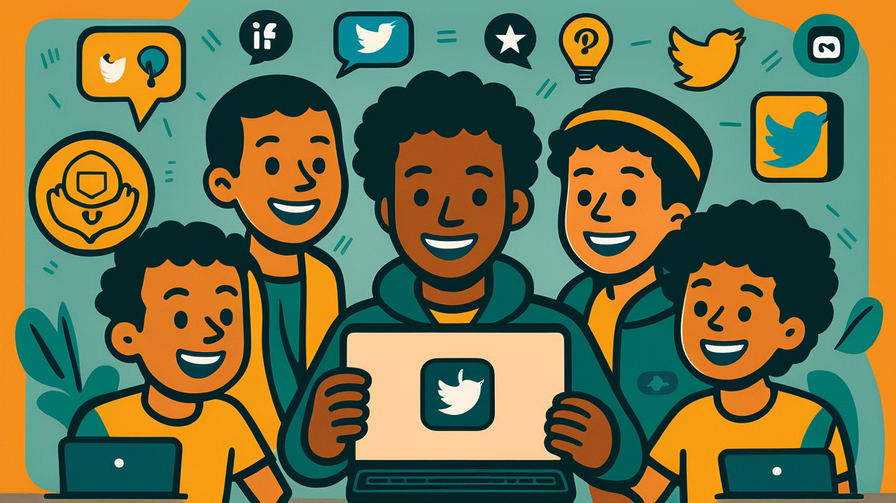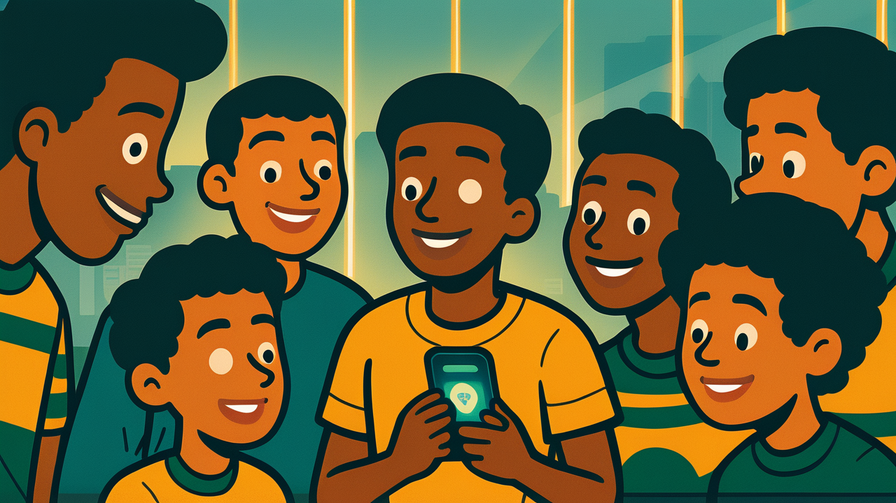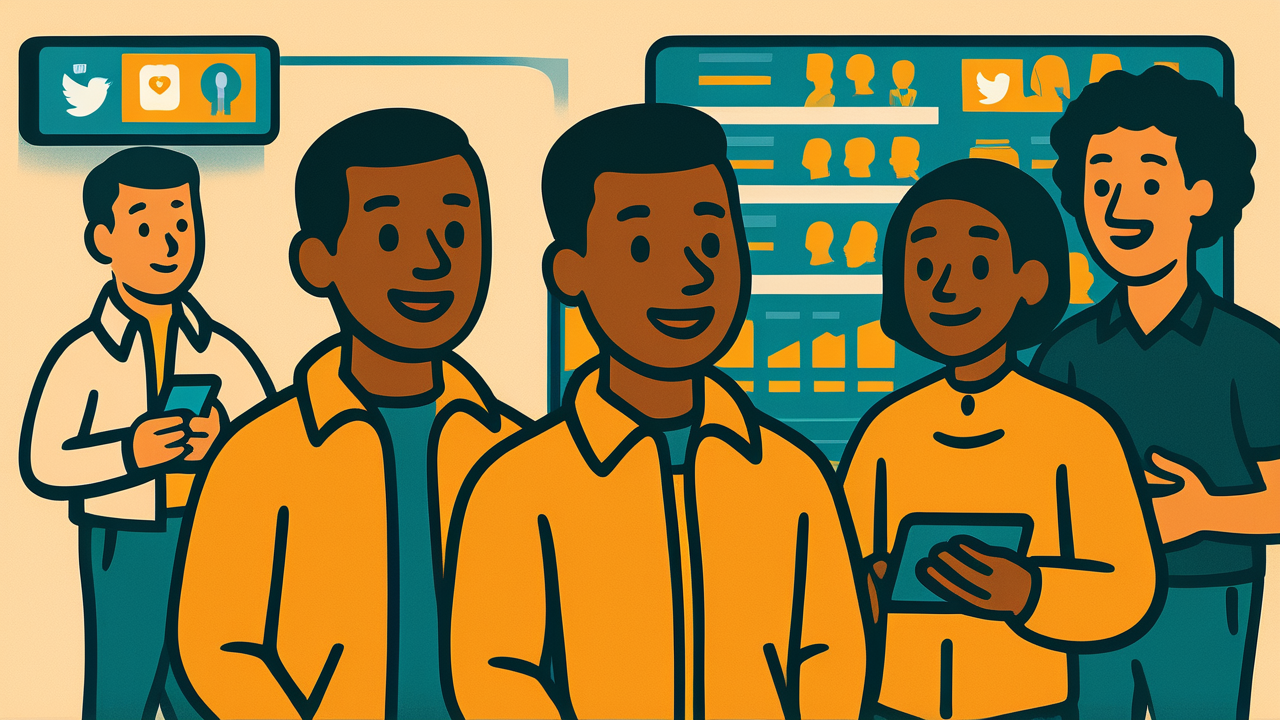[Disclaimer] This article is reconstructed based on information from external sources. Please verify the original source before referring to this content.
News Summary
The following content was published online. A translated summary is presented below. See the source for details.
A growing number of Black boys in Brazil are aspiring to become online influencers, seeing social media fame as their most viable path to success in a country marked by deep racial inequalities. Research shows that 65% of Black Brazilian teenagers list “influencer” among their top three career aspirations, compared to 40% of white teenagers. This trend reflects both the democratizing power of social media and the harsh realities of systemic racism in Brazil, where Black youth face limited access to traditional career paths. Successful Black Brazilian influencers like Gkay, Pequena Lo, and Lucas Penteado have shown that social media can bypass traditional gatekeepers in media and entertainment. However, experts warn that while social media offers opportunities, the influencer economy remains precarious, with only a tiny fraction achieving sustainable income. The phenomenon highlights how digital platforms are reshaping aspirations and creating new possibilities for marginalized communities while also revealing persistent structural inequalities.
Source: Global Voices
Our Commentary
Background and Context

Brazil has the largest Black population outside of Africa, with about 56% of Brazilians identifying as Black or mixed race. Despite being the majority, Black Brazilians face significant disadvantages in education, employment, and income.
Traditional paths to success – like becoming a doctor, lawyer, or engineer – often seem impossible when your school lacks resources, your family can’t afford university, and employers discriminate based on appearance. This is the reality for millions of young Black Brazilians.
Social media platforms like Instagram, TikTok, and YouTube offer something revolutionary: anyone with a phone and internet can potentially reach millions. You don’t need expensive degrees, family connections, or approval from traditional gatekeepers.
Expert Analysis
The appeal of becoming an influencer makes perfect sense when viewed through the lens of structural inequality. For Black Brazilian youth, social media represents one of the few spaces where they can control their own narrative and build success on their own terms.
Several factors drive this trend:
• Visibility of success stories: Black influencers who’ve “made it” are highly visible role models
• Low barriers to entry: Just need a phone and creativity, not expensive education
• Direct monetization: Can earn money without going through discriminatory hiring processes
• Cultural authenticity: Can celebrate Black Brazilian culture rather than hiding it
However, the influencer economy has its own inequalities – algorithm biases, need for expensive equipment as you grow, and the precarious nature of platform-dependent income.
Additional Data and Fact Reinforcement
The numbers tell a stark story about inequality in Brazil:
• Black Brazilians earn 45% less than white Brazilians on average
• Only 12.8% of Black Brazilians complete university (vs. 26.5% of white Brazilians)
• Black youth unemployment is 23.7% compared to 16.1% for white youth
• Yet successful influencers can earn R$10,000-100,000 per month (far above average salaries)
• Brazil has 159 million social media users – one of the world’s largest markets
Related News
This trend isn’t unique to Brazil. Across the Global South, marginalized youth increasingly see digital platforms as escape routes from systemic poverty. In Nigeria, India, and Indonesia, similar patterns emerge where traditional opportunities are limited.
Brazil’s government has started programs teaching digital skills to favela youth, recognizing the digital economy’s potential. However, critics argue these programs don’t address root causes of inequality.
Summary

The dream of becoming an influencer among Black Brazilian boys reflects both hope and heartbreak – hope that digital platforms can democratize opportunity, and heartbreak that traditional paths remain so blocked. While social media offers real opportunities for some, it’s not a solution to systemic racism and inequality. For these young people, the influencer dream represents agency in a system that often denies them choices. Understanding this phenomenon requires seeing beyond individual ambition to the structural forces shaping these dreams.
Public Reaction
Many Black Brazilian youth defend their aspirations, arguing that critics don’t understand their limited options. Parents express mixed feelings – proud of their children’s ambition but worried about unrealistic expectations. Educators call for balancing digital literacy with traditional education. Successful Black influencers emphasize the hard work behind their success while encouraging youth to have backup plans.
Frequently Asked Questions
Q: Is wanting to be an influencer just about easy fame?
A: No. For marginalized youth, it often represents one of the few accessible paths to economic mobility and self-expression in systems that otherwise exclude them.
Q: What are the realistic chances of success?
A: Very low – studies suggest less than 1% of aspiring influencers earn sustainable income. However, the skills learned (video editing, marketing, communication) are valuable regardless.
Q: How can society better support these youth?
A: By addressing systemic inequalities in education and employment while also providing realistic digital literacy training that includes both opportunities and risks of the creator economy.


